
Creature offers his CDs to passersby free of charge on 6th Avenue between 8th Street and 9th Street. “Do you like hip-hop?” he asks. If you say yes, he might tell you about how he appeared on Viktor Vaughn’s 2003 album Vaudeville Villain on the song “Open Mic Nite, Part 2.” And if you take one of his homemade CDs, he’ll ask for “a modest donation” in return.
An underground rap artist, Creature peddles his music on compact disc, a format made commercially available in October 1982. But in the independent record store upstairs, the walls are coated with vinyl records, a format which rose to dominance 40 years prior.
According to Nielsen SoundScan data, vinyl records posted record breaking sales numbers on November 8. Two million records were sold, which is 37% more than at the same time last year, and the most since Nielsen began tracking vinyl sales in 1991.
“Not in our market,” scoffed DJ Eclipse who oversees retail at Fat Beats, an independent record store specializing in hip-hop.
Even though vinyl plays an integral role in hip-hop production and DJing, Fat Beats has not enjoyed a share of the surge in vinyl sales. Music industry experts predict vinyl will play a significant role in the recording industry while hip-hop fans and record collectors don’t foresee vinyl expanding beyond a niche audience of audiophiles and enthusiasts.
“[Vinyl] helps to re-emphasize the music as opposed to the promotion or the sales,” said Sam Howard-Spink, Clinical Assistant Professor of Music Business at NYU. “To show that you’re a professional musician, it helps to hold up a vinyl copy of a record, because everyone can burn their own CD. So in a way, it’s a physical manifestation of the proof that you are a working band and there’s a label behind you.”
In July 1994, Joseph Abajian opened Fat Beats as a record store specializing in hip-hop and hard to find vinyl. The store’s website says its mission is “to become the international Mecca for true lovers of hip-hop.” Today, Fat Beats has locations in New York City, Los Angeles, and Amsterdam, as well as a distribution label and an online store.
“It’s more than just a store,” said Grant DeWilde, a record collector. “It’s one of the centers of the hip-hop scene in New York.” Artists regularly show up at Fat Beats to meet the fans or perform. The staff comprises a hip-hop group called Brown Bag AllStars.
“It’s funny because the numbers they’re quoting with the groups that are selling 20,000-25,000 units on vinyl – that’s cool, but we were doing that with hip-hop releases in the late 90s,” said Eclipse. “D.I.T.C. and Mos Def and all the stuff that was being distributed through Fat Beats that was of quality was doing those kind of numbers, but I’ll be damned if any of those artists are doing those kind of numbers now on vinyl,” he said.
Records attached to big name underground producers like DJ Premier, Pete Rock, and J Dilla still enjoy moderate success, according to Eclipse, but unestablished hip-hop acts have more trouble selling vinyl records. “It’s really hard to get stores to even take the stuff in, especially when you [see] stores are closing left and right.” Some Best Buy locations have begun carrying vinyl, but the stores that carry independent hip-hop vinyl are struggling to survive.
“We sell probably a bigger percentage of CDs and then clothing, DVDs, stuff like that, other tangible items that you can’t necessarily download,” said Eclipse, “We still try to support the vinyl scene, but it’s hard when the customers don’t support it back.”
“I think vinyl sales are up more in the rock genre.” said The Audible Doctor, who works at the store as a manager and at Fat Beats Records as an A&R. He placed the reason for hip-hop’s struggling sales elsewhere; “Hip-hop is not doing as well, because the majority of it sucks,” he said.
Part of the value of vinyl lies in its superior audio quality. “MP3s, for those of us who care about these things, sound like crap,” said Howard-Spink. “[With vinyl,] there’s a warmth and the bass notes come out cleaner,” said DeWilde.
Releasing a vinyl album also states an artist’s credentials. “It’s like, ‘Yes, our music is so good that we want to put it out on vinyl because it actually sounds better,’” said Howard-Spink. “It [also] has a lot to do, I think, with the fact that no one can hold an MP3 in their hand,” he said.
“It’s about collecting,” said Eclipse, who estimated that he has 30,000 records. “It’s a sickness, but it’s part of who I am,” he said. “Personally, I only collect records that are original. I won’t buy represses,” said DeWilde.
Though vinyl sales are up overall, Howard-Spink doesn’t believe they are strong enough to supplant declining CD sales. “The industry is irretrievably digital,” he said.
David Purcell, Assistant Director of Music Business at NYU, believes that the lack of portability ultimately hinders vinyl. “One thing that I think would interesting is if more younger consumers that were interested in vinyl actually started purchasing newer releases on vinyl…and then instead of downloading it, either legally or illegally, [they] just had either a turntable or an adapter that allowed them to make digital copies of it,” he said. “I think if that became easier and more fluid of a process, I can see [sales] still increasing a bit.”
Eclipse and Howard-Spink agreed that licensing and publishing are the future revenue streams of music businesses. “We’re going to continue to change with the times. As there’s been less and less hip-hop vinyl coming out, we’ve started making more room for more hip-hop related items,” said Eclipse. “More t-shirts, more DVDs, more books or magazines that are related to hip-hop, hip-hop paraphernalia, hip-hop belt buckles or watches, anything that has to do with hip-hop.”
“We represent hip-hop culture, so we’re going to make Fat Beats continue on with that premise,” he said.

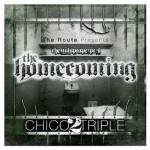

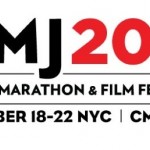
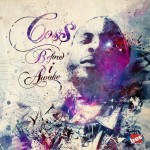









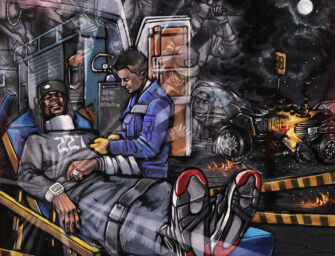
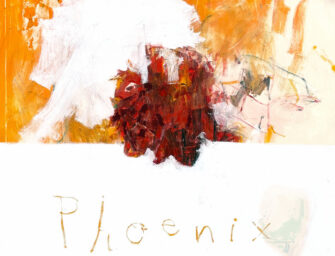
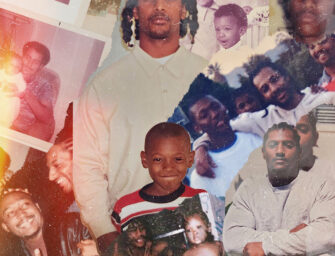
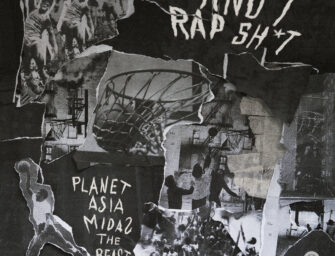
[…] Vinyl sales are on the up and up, however, that is not the case for hip-hop. [LINK] […]
Have you read this?
http://www.npr.org/templates/story/story.php?storyId=121483273#
nah i never saw that. thanks for the link.
[…] wrote about Fat Beats and the business of hip-hop vinyl last year. DJ Eclipse told me that hip-hop wasn’t part of the niche resurgence of vinyl, but […]